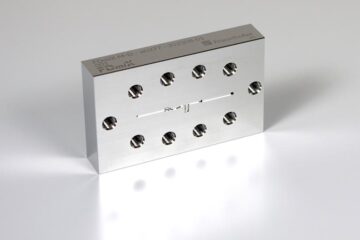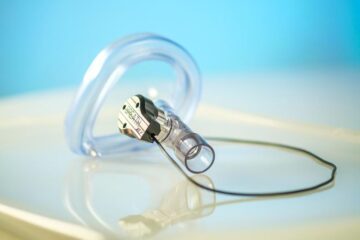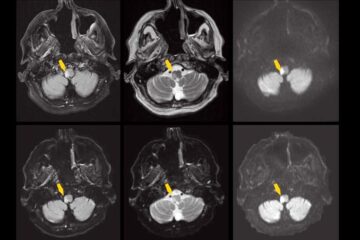Dental Implant – Optimised adhesion of gingiva through bio-nano-coating

Medicinal implants have become widely used in modern dentistry. While significant progress has been made to improve the adhesion of such dental implants to the jaw, adhesion of the gingiva to the titan surface is still a major problem. Insufficient adhesion of the gap between the implant and the tissue leaves a pocket for bacteria and therefore frequently leads to peri-implantitis. In many such cases the implant has to be removed.
The invention provides a multi-layer bio-nano-coating to optimise the adhesion of gingival fibroblasts to the implant. This bio-nano-coating is tightly connected to the implant and at the same time ensures flexibility of the molecular layers. Further the bio-nano-coating enables the native conformation of embedded molecules, e.g. of fibronectin. This is essential to attract gingival fibroblasts, which then link the gingiva to the titan surface of the implant by generating their own extra-cellular matrix. In summary, the invention comprises medicinal implants with biofunctional coating, which will greatly reduce the incidence of peri-implantitis and other complications related to the insufficient adhesion of the tissue to the implant.
Weitere Informationen: PDF
PROvendis GmbH
Tel.: +49 (0)208/94105 10
Ansprechpartner
Dipl.-Ing. Alfred Schillert
Media Contact
Alle Nachrichten aus der Kategorie: Technologieangebote
Neueste Beiträge

FDmiX: Schnelle und robuste Serienproduktion von Nanopartikeln
Verkapselungstechnologie der nächsten Generation… Nukleinsäure-basierte Medikamente wie mRNA-Impfstoffe bieten ein enormes Potenzial für die Medizin und eröffnen neue Therapieansätze. Damit diese Wirkstoffe gezielt in die Körperzellen transportiert werden können, müssen…

Sensor misst Sauerstoffgehalt in der Atemluft
Eine zu geringe oder zu hohe Sauerstoffsättigung im Blut kann bleibende körperliche Schäden bewirken und sogar zum Tod führen. In der Intensiv- und Unfallmedizin wird die Sauerstoffkonzentration der Patientinnen und…

Neue MRT-Technik erkennt Schlaganfälle in kürzester Zeit
Tag gegen den Schlaganfall: Forschende der Universitätsmedizin Mainz haben im Rahmen einer Studie erstmals eine KI-gestützte Magnetresonanz-Tomographie (MRT)-Methode untersucht, um akute ischämische Schlaganfälle effizienter detektieren zu können. Dabei setzten sie…

















